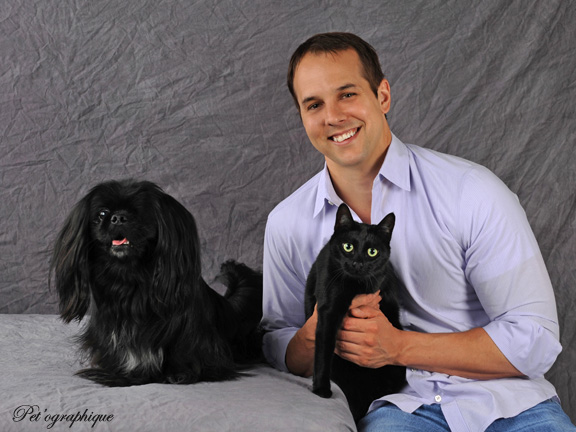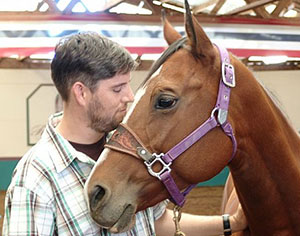BIRD DIETS
Share This Everywhere!
 Get More Pet Tips
Get More Pet Tips
Content provided Pet Talk with Dr. B is meant for educational purposes on health care and medical issues that may affect pets and should never be used to replace professional veterinary care from a licensed veterinarian. This site and its services do not constitute the practice of any veterinary medical health care advice, diagnosis or treatment.
BIRD DIETS
AVIAN DIETS: The Good, The Bad, and The Ugly
By David Hannon, DVM, Dipl. ABVP-Avian
With the variety of avian diets on the market, and the copious amounts of information (and misinformation) provided by pet stores, aviculturists, and veterinarians, it's difficult to make an educated decision about your bird's nutrition. The purpose of this article is to provide you with he pros and cons of the most common avian dietary choices.
Seeds and Nuts
Seeds are unfortunately the mainstay of most pet birds. Typically single bird owners or owners of small bird species are the culprits when it comes to feeding seeds as the main dietary staple. In the past, seeds and nuts were thought to be a satisfactory diet for most psittacines, but years of research have proven this to be a myth. In actuality, seed diets lack 21 essential nutrients from four groups. These include vitamins (A, B12, D, E, K, riboflavin, pantothenic acid, niacin, biotin, and choline), minerals (calcium, sodium, iron, copper, zinc, manganese, iodine, and selenium), amino acids (lysine and methionine), and fiber. Seeds are, however, high in protein and a good source of fat. Fortified seed diets have been treated topically with a vitamin/mineral solution. This is a good idea in theory, but in actuality, most birds will crack the seeds and eat the meat, leaving the hulls and all the vitamins behind. The hulls also contain the majority of fiber in a seed diet, so while seeds are actually high in fiber, the ingested portion is deficient.
Seed Mixes
Manufacturers of commercial seed mixes boast that their diets are more nutritionally complete than seed diets, because in addition to seed and nuts, they contain grains, dried fruits, and pellets. Even though these diets may be nutritionally complete as a whole, one needs to consider that birds are selective eaters. The typical bird will start by selecting its favorite morsels first, which tend to be seeds, and when all is said and done, the pellets and dried fruit usually make up the bulk of the wasted portion. So seed mixes are better than all-seed diets, but not much better.
Fruits and Vegetables
It is possible to construct a complete vegetarian bird diet, but this provides research into which foods contain which essential nutrients. It also requires that the bird eat an appropriate amount of each food and not eat selectively, which is not the nature of a psittacine. The only way to guarantee that your bird is getting all of the nutrition in the diet is to blenderize it and feed it as a mash. As troublesome as this may be (because it has to be done daily), I know of people who do it. It seems to me that pellets are basically mash that has been extruded and dried, and are a lot easier to deal with. Remember that all fruits and vegetables fed raw should be cleaned thoroughly.
"Table" Food
Many birds have lived long healthy lives eating nothing but "people food." This doesn't just mean fruits and vegetables, but also breads, meats, eggs, dairy products, etc. There is one major rule of thumb: if it's good for your to eat, it's good for you to eat, and vice versa. The exceptions to this rule are chocolate, avocado, and rhubarb, all of which are toxic to birds. Of course, common sense prevailing, you should avoid foods high in fat, sugar, or salt, along with alcohol or other intoxicants, and never feed a bird any meat or poultry product that has not been thoroughly cooked. Frankly, if you eat a healthy, nutritious, well-balanced diet, so can your bird. Variety is important, so that the bird won't get in to a rut eating just one or two favorite foods each day and ignoring the rest. If your bird does have favorite foods, such as apples, bananas, or corn, you should reserve these foods for treats or rewards.
Pelleted Diets
Pellets offer a complete balanced diet in a compact form that has been scientifically formulated to give your bird optimal nutrition. If a bird eats a good quality pelleted diet, no other foods or supplements are necessary. However, pellets do lack the variety of table food and the palatability of seeds, and it may be difficult to get your bird to eat them if it has never eaten pellets before. I have found that birds hand-raised on commercial formulas will wean much easier on to a pellet of the same brand, and then they can be maintained on that diet. Pelleted diets not formulated for psittacines, such as dog or cat foods or commercial poultry diets, do not provide proper nutrition. They can lack nutritional elements that are essential to a bird's good health, and they may also contain micro-organisms, such as yeast or gram-negative bacteria, that are not harmful to the animal the diet was formulated for, but may be harmful to your bird.
Dietary Supplements
Vitamin and mineral supplements are typically not needed if a bird eats a well-balanced mixed-food or pelleted diet. If you do wish to supplement you bird with a vitamin/mineral mix, the supplement should be placed on the food and not in the water. Vitamin supplements in the drinking water can cause bacterial or fungal growth, and if a bird bathes in the water, it may cause skin irritation and lead to feather-picking. Remember that vitamins and minerals can be over-supplemented.
Calcium supplementation, via cuttlebone, oyster shell, etc., is not necessary for most birds on a good nutritional plane, but it is a good idea for laying hens or growing chicks, and for African grey parrots, which are predisposed to hypocalcemia. Hard-boiled eggs crushed shell and all provide a good calcium supplement that doesn't have the potential contamination that ocean-origin products might have.
Live-culture yogurt or buttermilk should be offered on occasion to help provide your bird with a normal intestinal bacterial flora, especially if the bird has been on antibiotics. A healthy psittacine or passerine on a well-balanced diet should not need grit supplementation.
One Vet's Opinion
Now that I've presented you with the facts about bird diets, let me offer my opinion on optimal psittacine nutrition. The base of a bird's diet should be a good-quality brand-name pellet that the bird will eat. The pellets should be available at all times, as should water. Once or twice daily, the bird should be offered "table food" in a separate bowl, not necessarily because the bird needs it nutritionally, but because it provides the bird with variety and mental stimulation, which improves its psychological well-being. For this reason, the food should be cut into varying shapes and sizes.
I prefer hard-boiled egg shell to cuttlebone or oyster shell for calcium supplementation, and I think that a good-quality pellet negates the need for vitamin or mineral supplementation. Seeds and nuts should only be offered as treats and should not make up a substantial portion of the diet. I also believe that all food and water, regardless of appearance or amount not eaten, should be disposed of and replaced fresh at least every 24 hours.
Remember that a bird maintained on a proper nutritional plane, with no dietary deficiencies, will be a lot less prone to stress or disease, and will make a much better quality pet or breeder.



